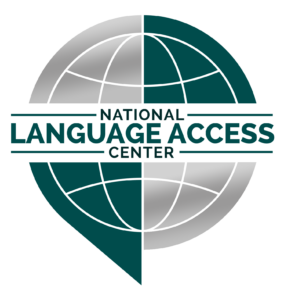Language Access and Emergency Response: Why It’s a Public Safety Priority
When disaster strikes, every second counts. In the chaos of a fire, a medical emergency, or a natural disaster, clear communication can be the difference between life and death. Yet, for individuals with limited English proficiency (LEP), language barriers can hinder access to critical information and emergency services, putting their lives and the safety of the entire community at risk. This is why language access in emergency response is not just a matter of inclusivity, but a public safety imperative.
In my years working as a Spanish interpreter, I’ve seen how easily crucial details can be lost in translation, even in less stressful situations. It underscored for me just how vital it is that in moments of crisis, everyone has equal access to potentially life-saving information.
The Challenges of Communication in Crisis Situations
Imagine a scenario where someone needs to call 911 but can’t explain their situation in English. Or a family evacuating their home during a wildfire, unable to understand the instructions given in a language they don’t know. These are just some of the challenges faced by LEP individuals during emergencies. I recall an incident where a Spanish-speaking family was involved in a car accident. While they were fortunate to escape with minor injuries, their inability to communicate with the paramedics at the scene caused significant anxiety and confusion. It was a clear reminder that language barriers can exacerbate an already stressful situation and hinder access to critical care.
Language barriers can lead to:
Delayed Response Times: Difficulty communicating with emergency dispatchers can delay the arrival of first responders, potentially exacerbating the situation.
Misunderstandings and Errors: Miscommunication between LEP individuals and emergency personnel can lead to incorrect assessments, inappropriate treatments, and even tragic outcomes.
Panic and Confusion: Inability to understand warnings, instructions, or safety information can increase panic and confusion, hindering evacuation efforts and putting individuals at greater risk.
Limited Access to Resources: LEP individuals may not be aware of available resources, such as shelters or emergency hotlines, due to language barriers.
The Importance of Multilingual Communication
Multilingual communication is essential for ensuring that everyone, regardless of their language background, has equal access to emergency services and information. This includes:
911 Dispatch Services: Providing interpretation services for 911 calls ensures that LEP individuals can effectively communicate their emergency and receive timely assistance.
Emergency Alerts and Warnings: Disseminating alerts and warnings in multiple languages ensures that everyone receives critical information, regardless of their language proficiency.
Evacuation Instructions and Shelter Information: Providing clear and accessible information in multiple languages helps LEP individuals understand evacuation procedures and access safe shelters.
Communication with First Responders: Having interpreters available on-site or through remote technologies allows first responders to communicate effectively with LEP individuals, assess their needs, and provide appropriate care. This is especially important in a city like Milwaukee, with its diverse population and growing immigrant communities.
Strategies for Enhancing Language Access in Emergency Response
Language Needs Assessment: Identify the language needs of the community and assess potential communication barriers in emergency situations.
Interpreter and Translator Training: Invest in training and certification programs for interpreters and translators specializing in emergency response terminology and protocols.
Multilingual Resources: Develop and disseminate multilingual emergency preparedness materials, including brochures, checklists, and online resources.
Technology Integration: Utilize technology, such as language interpretation apps and multilingual alert systems, to enhance communication during emergencies.
Community Outreach and Education: Conduct outreach programs to educate LEP communities about emergency preparedness and available language access services.
Need Help?
Preparing for emergencies requires a comprehensive approach that includes language access. Whether you’re a government agency, a healthcare provider, or a community organization, I can help you assess your language needs and develop a plan to address them. With my years of experience as a Spanish interpreter in high-stakes settings, I understand the nuances of ensuring clear communication when it matters most. Contact me today, and let’s work together to make emergency response in Wisconsin more inclusive and effective for everyone.






